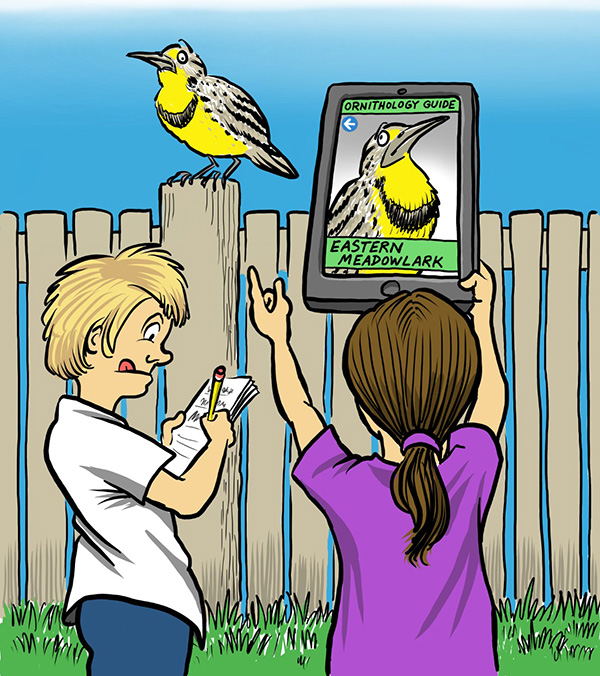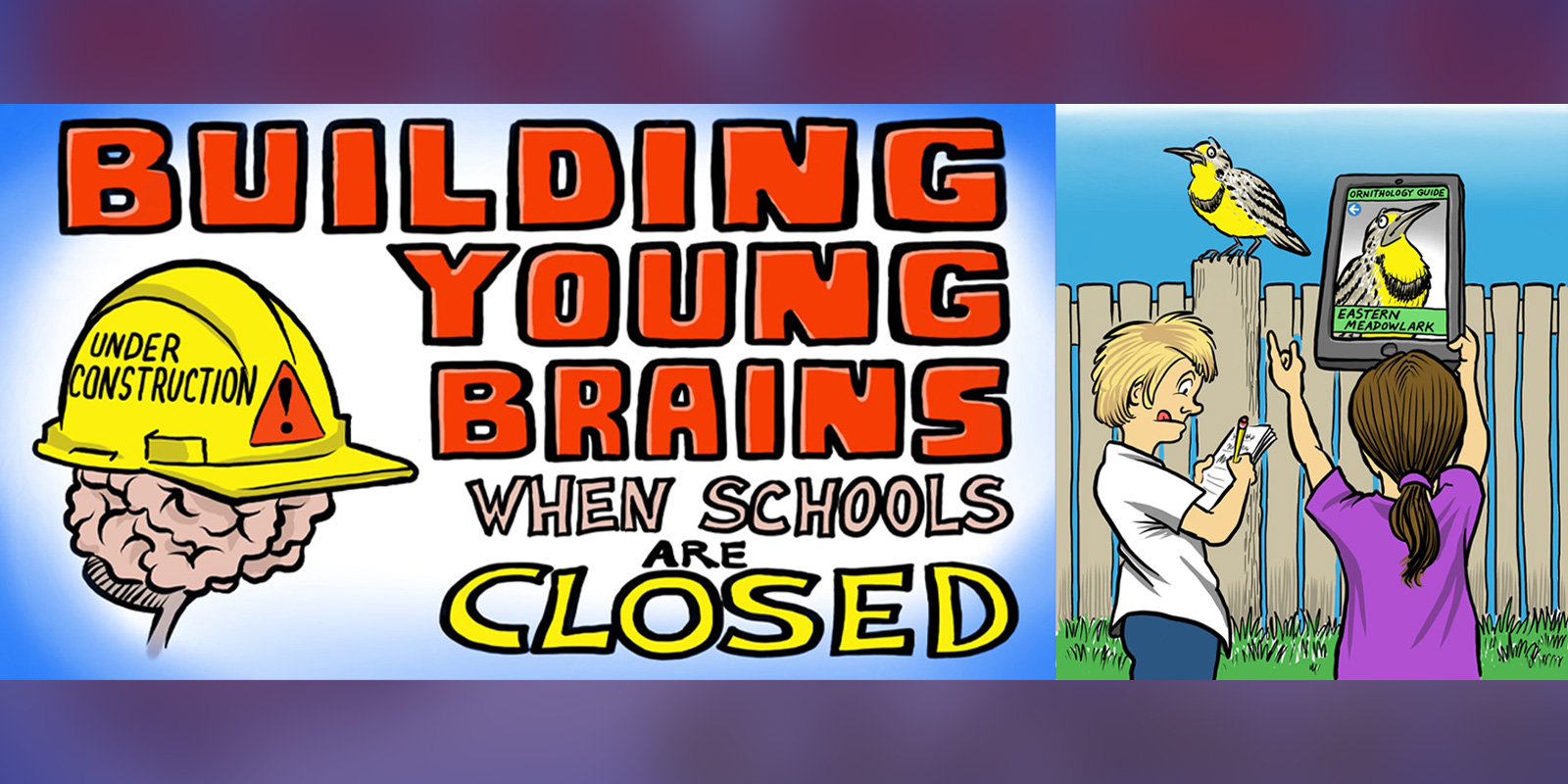This is part 3 of a a three-part series. Read Part 1 (Offline Activities) and Part 2 (Online Tips).
In this series about activities for young children during the COVID-19 (Coronavirus) crisis, we’ve presented offline and online suggestions. Here are smart and exciting science-fueled activities to enjoy in the great outdoors, courtesy of Peter Walsh, education director at Seatuck Environmental Association and Little Peepers Preschool.
- Have a mini BioBlitz outside. A BioBlitz is a fun and fancy name for cataloging the plant, insect and animal life in a specific area during a brief period of time. The goal is to provide a snapshot of biodiversity. Sit quietly with the kids, observe and ask, “What do you see?” If you make this an ongoing project, your kids can see how seasons affect biodiversity
- Make a simple map of an outside space.
- Inventory the plants & wildlife (from bugs on up) in that space. (The internet is a great resource for identification.)
- Invite your child to mark on the map where these were found.
- Ask kids to draw what they see or to write in a nature journal.
- Fun apps like iNaturalist allow you to share with fellow naturalists across the world.
-

Illustration by Art Hondros Become a birder. Develop knowledge and inspire a love of birds! View birds from outside, during walks or from your kitchen window. Draw the birds you see and use the guide or free app from The Cornell Lab of Ornithology to identify them. Compare their sizes, colors, wingspan, beaks, even birdsong.
- Join the hunt! Create scavenger hunts with rocks, shells, pieces of bark and leaves around the home and in outdoor spaces.
- Take an interstellar adventure. Stay up late to learn planets and constellations. Visit NASA Kids’ Club or PBS Kids’ Ready Jet Go first to prepare for your explorations.
- What’s Phenology? Start a Phenology study in your yard, looking for a fern to unfurl, a tree bud to burst and tender shoots of spring flowers to break through the soil and blossom. Plants tell a story. What do the plants in your yard tell you? Take photos, make drawings, write a poem, sing a song.
Don’t miss: A parent’s guide to surviving COVID-19: 8 strategies to keep children healthy and happy from two of our favorite researchers: Kathy Hirsh-Pasek and Roberta Michnick Golinkoff.





